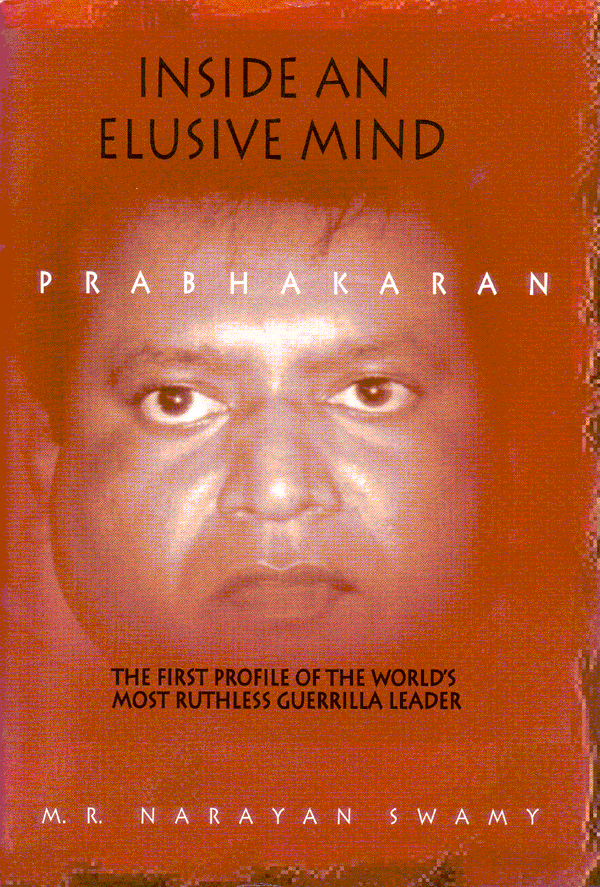
[see also
Sachi Sri Kantha Review]
Book Note
That which may be described as the 'Indian Orientation' of the book [see
India & the Struggle for Tamil Eelam] is reflected in the short sketch
about the author which appears at
Amazon.com: "M.R. Narayan Swamy has been a journalist for 25 years
and currently works at the Indo-Asian News Service (IANS), a New
Delhi, India based wire service. He began his career in 1978 with
the UNI, one of India's two mainline news agencies, and later joined the
AFP, the international French-English news agency where he worked for 13
years..."
Accordingly, there may be a need for the reader to sift truths from half
truths and opinions passed off as facts - and perhaps have recourse to the
Thirukural -
"Whatever may be said, whosoever may say it -
to determine the truth of it, is wisdom" -
Having said that, the book remains, sometimes unwittingly, a valuable
source of information about the activities of the Research Analysis Wing
(RAW) of India in relation to the Tamil struggle. This is more so because
the sources to whom the author has given thanks include the following:
Arul Pragasam (Arular), Shankar Rajee, D.Siddarthan, A.Varadarajah
Perumal, S.C.Chandrahasan,
Douglas Devananda, L.Keetthishwaran, J.N.Dixit, A.S.Kalkat,
K.Mohandas,
T.S.Subramaniam, Sadanand Menon, V.Subramaniam and Nirupa
Subramaniam.
Again, it may be that much of the activities of the Research
Analysis Wing that the book 'reveals' was
already in
the public domain. Nonetheless, many Tamils may find the following quote
from pages 96 and 97 of interest:
"...Most Tamil separatists from Sri Lanka had accepted the Indian offer
(to provide arms and training) at its face value, thinking that New Delhi
was reaching out to them out of genuine concern for their condition.
However, an extraordinary revelation began to unfold as the training
started. Many guerrillas realized that the training was just a subterfuge
for a
larger strategic game that India was attempting to play, a game in which
the Tamil rebels may end up being just expendable pawns.
The militants were surprised because besides just training them, some
trainers asked leading questions that indicated India might one day do a
Bangladesh in Sri Lanka. Indian troops had intervened militarily in the then
eastern wing of Pakistan in 1971, leading to its secession from Pakistan's
western wing and emergence as an independent nation called Bangladesh. The
trainers wanted to know details about road bridges, railway tracks, landing
fields, the depth of the sea and the coastline. Some Sri Lankans were asked
to get photographs; when they refused, the Indians became angry. Some Tamils
complained that they were taught conventional, and not guerrilla, warfare.
Shankar Rajee of the EROS was stunned when an Indian officer announced
that the Tamils would be just an auxiliary force for the Indian army if and
when the latter invaded Sri Lanka.
[note by tamilnation.org - Whether Shankar Rajee was actually
'stunned' must remain a moot point. Shankar Rajee was a participant at
the
Thimpu Talks in July/August 1985 and his close connections with RAW
were well known]
As the months went by, the training became sloppy and indifferent.
Prabhakaran was quick on the uptake to see the warning signals...Once he
looked at some weapons supplied by the Indian government. He remarked wryly
to those standing around him: "See, they are giving us old stuff. They think
we are stupid"..